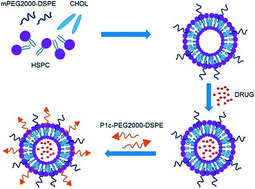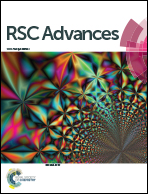P1c peptide decorated liposome targeting αvβ3-expressing tumor cells in vitro and in vivo
Abstract
Integrin αvβ3 is a promising target for integrin-rich tumor and neovascular. In the present study, we prepared a doxorubicin (DOX)-loaded liposome of which the surface was decorated with PEG and a novel αvβ3 targeting peptide of P1c. The in vitro targeting efficiency was evaluated in αvβ3-positive (U87MG) and -negative (MCF-7) tumor cells by flow cytometry and laser confocal scanning microscopy. The in vivo therapeutic effects were evaluated in the glioblastoma U87MG-tumor bearing mouse model. The results indicated that the prepared liposomes showed mean sizes of 131.2 and 128.4 nm in diameter for P1c-modified targeting liposomes (P1c-DOXL) and non-targeting liposomes (DOXL), respectively. The DOX encapsulation efficiencies were more than 95% in both types of liposomes. The conjugation ratio for P1c decoration was 66.8%. The flow cytometry and confocal laser-scanning microscopy experiments consistently showed that the intracellular fluorescence intensity of the P1c-modified targeted liposome group was stronger than that of the non-targeted liposome group (P < 0.05) in U87MG cells. In vivo results revealed that compared with DOX or DOXL treatment, P1c-DOXL dramatically reduced tumor growth (P < 0.05) and tumor angiogenesis while much lower hepatotoxicity was observed. P1c-modified targeting liposome exhibited sustained release, enhancing the antitumor effect of DOX through targeting tumor cells and neovascular where integrin αvβ3 was overexpressed. The results indicated that P1c might be promising for active targeting delivery in cancer therapy.



 Please wait while we load your content...
Please wait while we load your content...